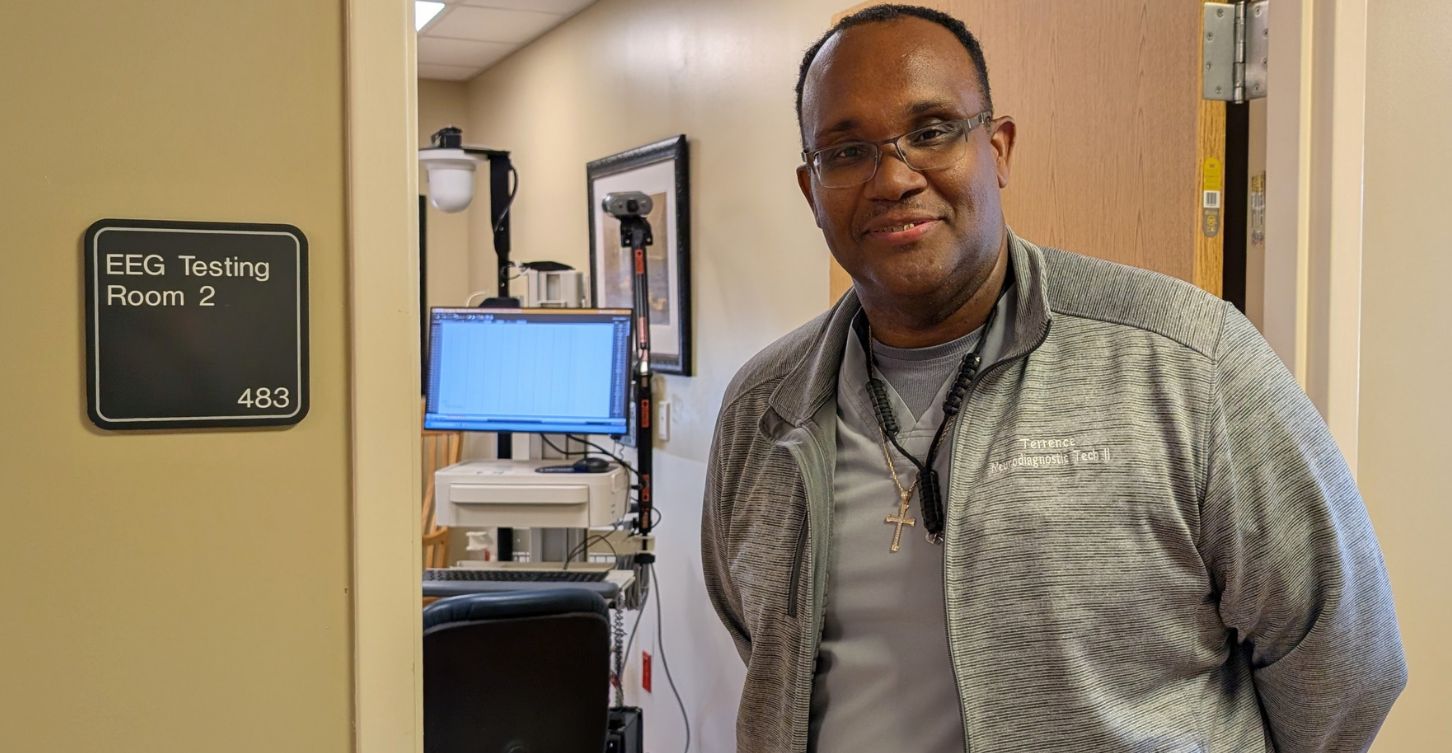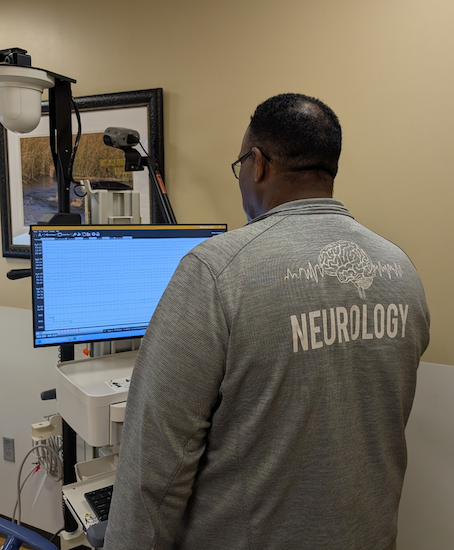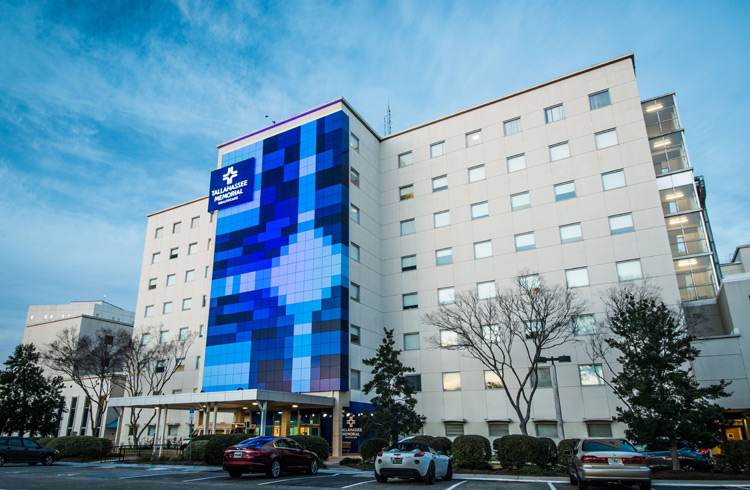Inside Neurodiagnostics: Meet Terrence, EEG Technologist at TMH
October 24, 2025
By: Tallahassee Memorial HealthCare
Categories: Healthy Living, Colleague Stories
At Tallahassee Memorial HealthCare (TMH), our Neurodiagnostics team plays a vital role in understanding and monitoring the brain’s electrical activity. From diagnosing seizures to monitoring brain activity during surgery, their expertise helps guide physicians toward life-changing care for patients across the region.
For Terrence Wood, one of TMH’s electroencephalography (EEG) technologists, the journey into neurodiagnostics began with a spark of curiosity and inspiration.
Terrence got his start at TMH as a nursing assistant in the Cardiac Progressive Care medical-surgical unit before spending 15 years as an electrocardiogram (EKG) technologist. Driven by a passion for patient care and an interest in the technical side of medicine, he found his niche in a field that combines complex technology with meaningful, hands-on impact.
“One day, as I was doing an EKG on a patient, I saw a colleague doing an EEG on a patient. I thought it was very cool and interesting— all the different wires and functions of the brain waves. I wanted to learn what each one meant.”
That moment led him to pursue formal training through the Institute of Health Sciences in Baltimore, Maryland. Eight years later, Terrence continues to thrive in his role as an EEG Technologist. He’s a key member of the EEG team at TMH—helping patients of all ages, from children with epilepsy to adults experiencing sleep disorders or seizures.
“Our findings provide physicians with a diagnostic tool to help determine the patient’s condition. I enjoy being part of a crucial step in the patient journey,” Terrence shares.
What’s the Difference Between EEG and Intraoperative Monitoring?
EEG and intraoperative neurophysiological monitoring are both part of TMH’s Neurodiagnostics services, but they serve distinct purposes.
- EEG Technologists record and analyze the brain’s electrical activity to help diagnose conditions such as epilepsy, sleep disorders or unexplained episodes.
- Intraoperative Neurodiagnostic Technologists, on the other hand, work in the operating room alongside surgeons, using specialized technology to monitor nerve and brain function in real time during procedures. This helps protect critical pathways that control movement, speech and sensation.
Both roles demand attention to detail, strong technical skills and a deep sense of compassion for patients who may be facing serious neurological concerns.
A Place to Learn and Grow
After 23 years at TMH, Terrence says the sense of community and opportunity for growth are what keep him here.
“I love TMH. I’m here for life,” he says with a smile. “I’ve learned so much since I started, and I’m still learning every day. I love our patients and love our community.”
That commitment to lifelong learning is part of what makes TMH’s Neurodiagnostics team so special—combining advanced technology with a caring touch to advance healthcare and make our patient’s lives better.
Explore Neurodiagnostics at TMH
Curious about how technology and healthcare come together to study the brain? TMH offers opportunities for students and those exploring healthcare careers to shadow our Neurodiagnostics team and see this fascinating field in action.
From EEGs that record brainwave activity to intraoperative monitoring that supports surgeons during complex procedures, you’ll gain insight into how technologists play a vital role in patient care and innovation.
Find out how to shadow a TMH healthcare professional, or explore more technologist careers at TMH.

